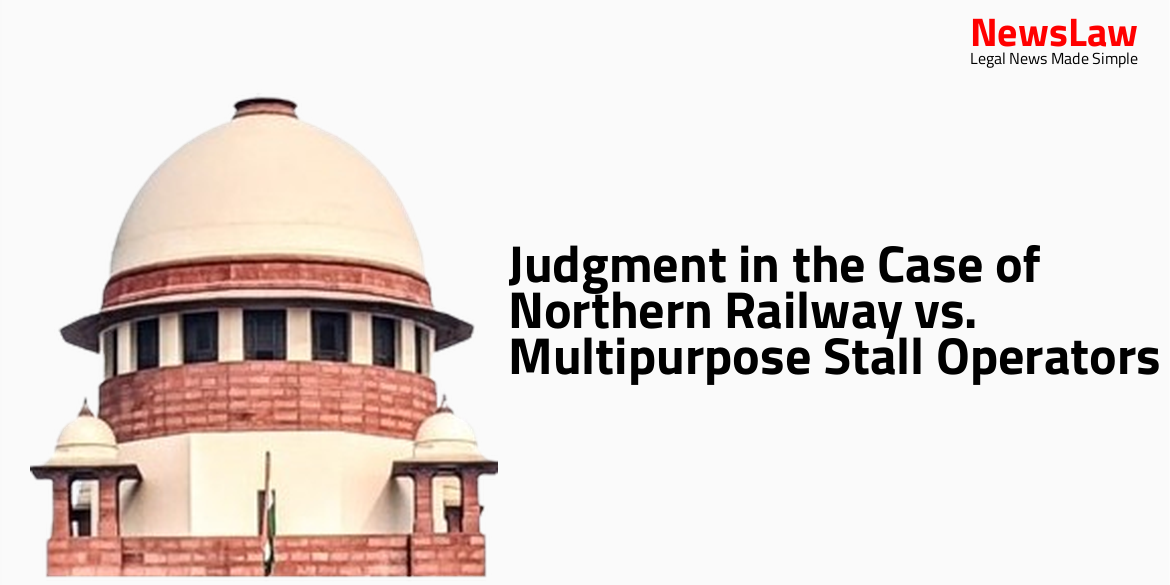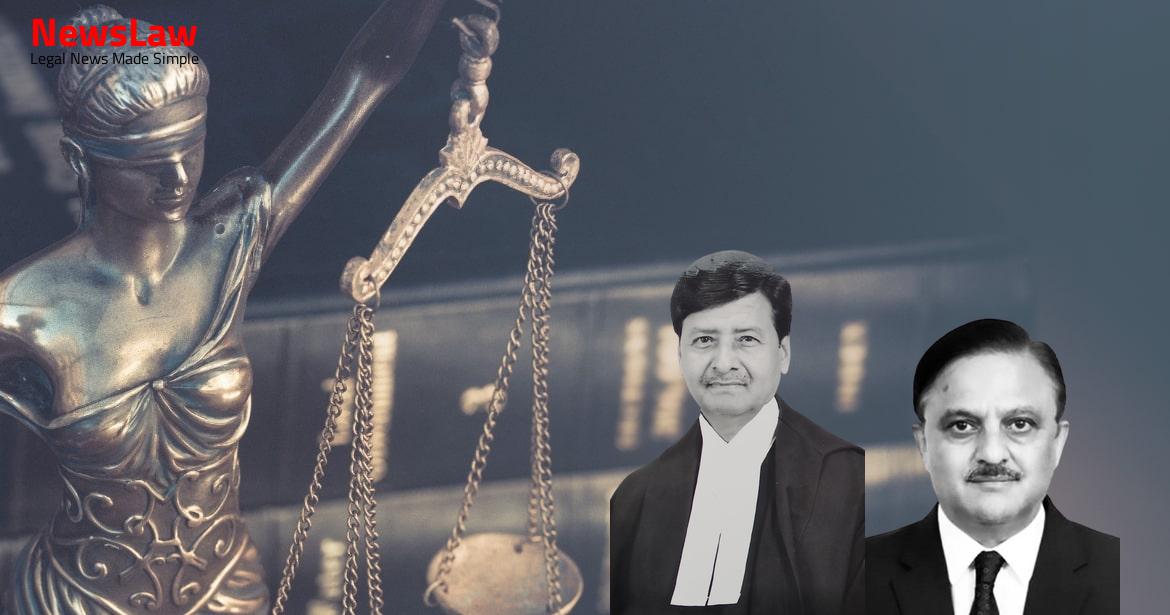Explore the critical examination of screening committee decisions in government job selection processes, focusing on the court’s legal analysis. The court’s role in ensuring fairness and non-discrimination in evaluating candidates with criminal backgrounds is essential for upholding the integrity of public service recruitment. Stay tuned to uncover the complexities and considerations in assessing candidates’ suitability for roles of public trust.
Facts
- Leave granted to assess suitability of the appellant
- Referred cases to a Standing Committee
- Assessment to be done in accordance with S.O. No. 398/2010
- Raj Kumar was acquitted on charges of assaulting the modesty of a woman and theft.
- The Screening Committee’s decision to reject Raj Kumar’s candidature was deemed mechanical and arbitrary.
- The High Court criticized the Screening Committee’s order and highlighted that the charges against Raj Kumar were not serious.
- The CAT overturned the Screening Committee’s decision, emphasizing that Raj Kumar was young and had not been charged under Section 325 IPC.
Also Read: Legal Analysis of Claim for Loss of Profit in Delayed Contract
Arguments
- The appellant, Commissioner of Police, Delhi, is aggrieved by the judgment of the Delhi High Court directing the consideration of respondents for the post of Constable in Delhi Police.
- The advertisement was issued in 2009 for vacancies of constables in Delhi Police.
- The candidates were alleged to have committed offences under Section 323 IPC, but the alleged victims compromised with them later.
- The appellant relied on previous court rulings in similar cases to justify considering the candidates unsuitable for the post.
- Arguments were made that the Screening Committee did not consider all facts before rejecting the candidature of the candidates.
- The candidates argued that the rejection of their candidature was unjustified and mechanical, citing Standing Orders and court decisions.
- The Division Bench of the High Court allowed the writ petitions and quashed the rejection of the candidates’ candidatures.
- The Additional Solicitor General representing the appellant argued that the Division Bench overlooked the authority’s discretion in selecting candidates with satisfactory conduct.
- Specific cases of candidates facing criminal charges and outcomes of trials were highlighted to support the appellant’s stance.
- The learned counsel representing the respondent highlighted the trial court’s findings.
- The prosecution’s evidence was considered by the court of competent jurisdiction, leading to the exoneration of the candidate from the offences.
- The Screening Committee was urged to give appropriate weight to the trial court’s findings.
- The trial court revealed a strained relationship between the candidate and her husband, leading to accusations of abduction as he went missing.
Also Read: Public Declaration Requirement in Marriage under Hindu Marriage Act
Analysis
- The Screening Committee assesses the suitability of candidates based on their criminal history, involvement in cases, and acquittals.
- The High Court’s scrutiny of individual cases and its observations suggest a possible bias towards candidates with criminal backgrounds.
- Cases of misconduct and misuse of power among police personnel have impacted the reputation of the police force.
- The Screening Committee’s decisions, although final unless proven mala fide, must consider the trust reposed in it and treat all candidates fairly.
- In some instances, the Committee may have overlooked exonerations and acquitted candidates due to the gravity of the charges they initially faced.
- Judicial review must ensure fairness and non-discrimination in the evaluation of candidates’ suitability for government jobs, particularly in the context of criminal cases.
- The Standing Order empowers the Screening Committee to make decisions regarding candidates with criminal backgrounds, including acquittals or discharges.
- The Screening Committee’s assessment process is not subject to appeal and must be respected as they are equipped to judge the potential risks associated with appointing candidates with past criminal involvements.
- The overarching aim is to ensure that individuals with criminal antecedents are not appointed to positions of public trust, especially within the police force.
- If a candidate has disclosed their involvement and/or arrest in criminal cases, complaint cases, preventive proceedings, etc. and the case is pending investigation or pending trial, their candidature will be kept in abeyance until the final decision of the case.
- This will not be viewed adversely by the department for the candidate’s suitability for government service.
- Several judgments have emphasized the importance of candidates providing true information regarding their criminal record before or after entering service.
- There is a distinction between individuals acquitted ‘cleanly’ and those acquitted due to benefit of doubt in past judgments.
- Special circumstances may be considered by the employer while terminating services due to false information.
- Public employers, especially for police recruitment, need to scrutinize cases involving certain offenses indicative of caste-based behavior.
- The police force carries the responsibility of maintaining law and order, emphasizing the importance of selecting suitable candidates for public service roles.
- In matters of selection, the court should not act as an appellate authority over decisions made by Selection Committees.
- Judicial interference in selection processes should only occur in cases of bias, mala fides, or arbitrariness.
- The autonomy of the public employer in decision-making is crucial as long as the process is legal and fair.
- Selection Committees hold expertise in determining the suitability of candidates for specific roles.
- Courts are generally not empowered to interfere in selection processes unless there are significant violations of statutory rules or issues of bias or arbitrariness.
- The court sets aside the common impugned judgment and the orders of the CAT.
- Quashes the orders issued by the appellant declining appointment to the respondent candidates.
Also Read: OCI Cardholders’ Rights and Retroactive Notifications
Decision
- The appeals have been allowed
- No order on costs
Case Title: COMMISSIONER OF POLICE Vs. RAJ KUMAR (2021 INSC 423)
Case Number: C.A. No.-004960-004960 / 2021



